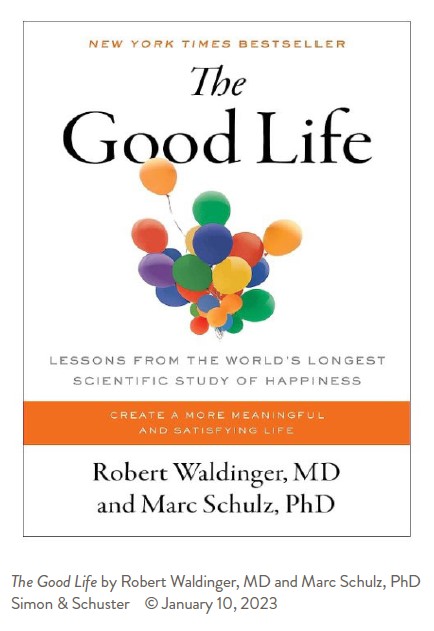What do you get when you take 724 individuals and regularly track their health and happiness over eight decades? One, you get the world’s longest-running study on human happiness, known as the Harvard Study of Adult Development. Two, you get a riveting view into the most basic of human questions: What makes a good life? What makes a healthy life full of happiness and meaning?
The Harvard Study of Adult Development began in 1938 with two groups of male participants: 268 sophomores at Harvard College and 456 inner-city boys from Boston’s poorest, most disadvantaged neighborhoods. Of the Harvard students, many were privileged, but half needed scholarships or jobs to get through Harvard. Of the inner-city boys, many lived in troubled circumstances, but only those who had avoided juvenile delinquency up to age 14 were chosen, and over 60% were from families where at least one parent had immigrated to the U.S.
Over time, the Study expanded to include spouses, partners, and more than 1300 descendants of the original cohort – as well as additional women, nonwhite, and culturally diverse participants. Amazingly, participant retention stayed at 84% over 84 years, and today the Study still is going strong.
The key to the Harvard Study is that it tracks each participant through time as life is being lived – not as it is remembered later. This is critical because we know memory can be deceptive. None of the Study’s participants could have known what lay ahead for them. A 14-year-old in 1938 could not have known that he would soon risk his life in World War II (as many of the original participants did) — or get married, take a certain job, or perhaps get divorced. By the age of 18, 40, or 80, he could have a completely different outlook on life and not remember how being 14 really felt. But the Study kept careful records of interviews, questionnaires, and medical exams — and this enabled the creation of a complete map of one’s life as it unfolded.
The researchers tracked all the things you would expect — job satisfaction, marital satisfaction, childbirths, divorces, psychological challenges, greatest fears, and the welfare of family members. It also recorded participant weight, exercise routines, cholesterol levels, drinking and smoking habits, and many other factors researchers weren’t sure would ever be helpful. (At one point, researchers asked, “Are you ticklish?”) They collected DNA samples. And some participants even generously agreed to donate their brains after death in case that should prove helpful.

What emerged from this rich trove of data? Many insights, for sure, but also one key conclusion that stood above all others and is astonishingly simple. According to the Harvard Study’s current directors, Robert Waldinger and Marc Schulz in their new book, The Good Life, the bottom line is that the most important element of a good life is positive relationships. Nothing matters more to human well-being and health – not career choices, wealth, professional accomplishments, or anything else. The quality of one’s relationships at age 50 is a better predictor of health at age 80 than cholesterol levels. Strong social connections are central to thriving. Loneliness is devastating.
The good life, it turns out, is not the absence of hardship. It is being able to navigate the twists and turns that get thrown your way – and that is much easier when you know someone is on your side.
Even if we know we should focus on relationships, however, it’s easier said than done. We humans are not very good at what the authors call “affective forecasting,” or predicting in the moment which actions will serve us best for the long run. In addition, it’s too easy to prioritize other things as the busyness of life overwhelms us: Our brains “often mislead us in our quest for lasting pleasure and satisfaction.”
The good news is that we can flourish in later life. In fact, “. . . research has shown that human beings are never as happy as they are in the late years of their lives. We get better at maximizing highs and minimizing lows. We feel less hassled by the little things that go wrong, and we are better at knowing when something is important and when it’s not.”
One of the most interesting questions asked of older Study participants is, “What do you wish you’d done less of? What do you wish you’d done more of?” And a very common answer is, “I wish I hadn’t wasted so much time worrying.” That seems like a pretty good answer – and good food for thought.